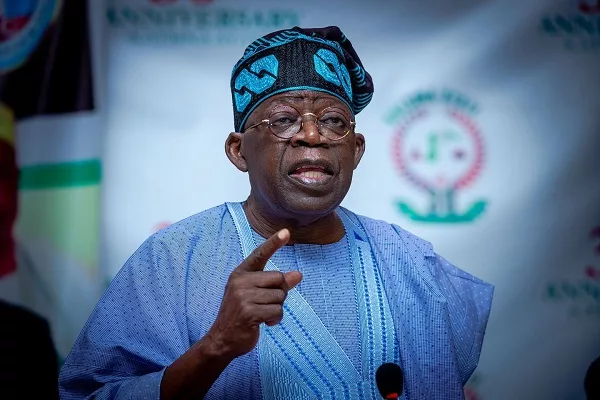The Organized Private Sector (OPS) has set agenda for the incoming government, advocating quality economic governance consistent with tested economic principles and empirical evidence, and contextualized within socio-economic peculiarities.
This, according to them, is critical from the onset of the administration for signaling and investors’ confidence.
The Independent National Electoral Commission (INEC) announced the presidential candidate of the All Progressives Congress (APC), Bola Tinubu, as the winner of the 2023 general elections, Nigeria’s seventh democratic election since 1999.
Speaking on good economic governance for the new incoming government, the CEO of Centre for the Promotion of Private Enterprise (CPPE), Dr. Muda Yusuf, said, the incoming government should take an overhaul review of the country’s foreign exchange policy reform for the betterment of the country’s economy on assumption of office.
He said that foreign exchange policy reform to unlock inflows of capital into the economy, reduce arbitrage in the forex market and improve transparency in the forex allocation are needed in urgency.
Yusuf also made case for the new incoming government to ensure a market reflective exchange rate to eliminate the distortions in the forex ecosystem, ensure level playing field in forex transactions, remove impediments to markets mechanism in allocation of forex, saying this will boost inflows from Foreign Direct Investment (FDI), Foreign Portfolio Investment (FPI), Export Proceeds and Diaspora remittances.
On trade and tariff reform, the CPPE’s director advised the new incoming government to ensure tariff regime that adequately protects local industries, import duty on intermediate products and critical industrial inputs should be reviewed to reduce production costs, tariff review processes should be more inclusive and transparent.
“In addition, the administration should prioritise trade facilitation and removal all non-tariff barriers to trade, removal of all customs checkpoints within the country. The practice of intercepting cargoes that have been duly cleared at any of our ports should be discontinued. The practice has been proven to be extortionist. The practice of appointing non-career persons as Comptroller general of the Nigeria Customs Service should be stopped. It is detrimental to professionalism and morale of career officers in the customs service.
“There should a balance between the revenue objectives and trade facilitation objectives of the Nigeria customs service. There is currently a disproportionate focus on revenue generation,” he said.
On regulatory reforms, Yusuf further added that, “we desire a regulatory environment where regulatory risks and regulatory shocks are at the barest minimum. This is necessary to boost investors’ confidence.
“Regulatory institutions and economic players must relate as partners, without necessarily compromising regulatory effectiveness. We should put an end to the culture of regulatory intimidation, coercion and undue harassment. There should regular consultative forums between industry players and regulators.”
The director-general of Manufacturers Association of Nigeria (MAN), Mr. Segun Ajayi-Kadir, explained that the assumption is that the new government will move swiftly to fulfill those promises they made and thereby justify the confidence reposed by the electorates, saying this is the essence of the social contract and in a democratic society, the government is expected to be accountable to the people and deliver on the promises made.
Ajayi-Kadir listed scarcity of foreign exchange, naira devaluation, high cost of diesel/energy/gas, multiple taxes, charges, levies, unavailability of raw materials, delay in receiving imported raw materials and high cost of raw materials as some of the challenges limiting the growth of the manufacturing sector under the outgoing administration, calling on the incoming government to urgently address these concerns to grow the economy.
According to him, “It is critically important that the identified current challenges of the sector by manufacturers themselves should be quickly taken up by the government with priority attention. The issues of acute shortage of forex, high cost of raw materials, inadequate power supply, multiple taxes/levies, among others, should be addressed so as not allow for further denervation in the activities of the sector.”
The private sector operators said it is desirous to see all recommendations implemented by the new administration, saying, they believe that if the prosperity of Nigeria is paramount, then the productive sector should be given maximum priority for the general good of all in terms of wealth and job creation for the nation.





